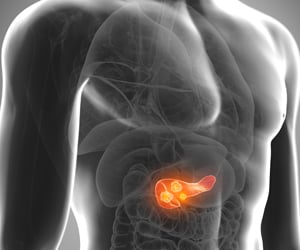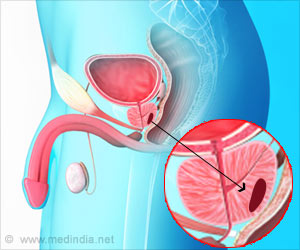Early genetic signs of cancer, years before the actual diagnosis, could help detect cancer much earlier. These early signs include genetic mutations in the DNA that occur much before cancer development.
- Early genetic signs, years before diagnosis, could signal cancer development in the future
- Mutations in the DNA of pre-cancerous cells are the early warning signs
- Could help in detecting cancer much earlier than conventional diagnostic methods
Two studies were carried out, both of which have been published in the February issue of the prestigious British journal, Nature.
Read More..
Study Team
The study was jointly led by Dr. Peter Van Loo, PhD, and Dr. Moritz Gerstung, PhD. Dr. Van Loo is the Group Leader of the Cancer Genomics Laboratory at the Francis Crick Institute in London, while Dr. Gerstung heads the Computational Cancer Biology Group at EMBL-EBI in Hinxton, Cambridgeshire, UK. The co-lead author of the paper was Clemency Jolly, who is a PhD student in Van Loo’s lab at the Francis Crick Institute, London, UK.Study 1: Key Features
- 47 million mutations (genetic alterations) in over 2,500 human tumors, across 38 cancer types were studied
- Frequency of replication of single mutations across chromosomes was studied
- This allowed determination of the sequence of the mutations and the relative time span between each event
- 20 percent of mutations took place very early – years or decades before cancer development
- 50 percent of the above early mutations were confined to just 9 genes
- Thus, only a few common genes were the drivers of early cancer development
- Early mutations in the following types of cancer were identified:
- Ovarian Cancer: Cancer of the ovaries in women that produce the eggs
- Glioblastoma: A type of brain cancer affecting the glial cells
- Medulloblastoma: A type of brain cancer affecting the cerebellum and commonly seen in children
- Specific early mutations likely to occur in 30 cancer types were identified
- Types of early mutations that occurred in the following cancer types:
- Ovarian Cancer: Mutation in the TP53 gene, encoding the tumor protein p53
- Glioblastoma: Production of an extra copy of chromosome 7
- Pancreatic Neuroendocrine Cancer: Deletion of several chromosomes at early stages of tumorigenesis
Study 2: Key Features
- Cancers in which different mutations are likely to occur simultaneously in their DNA were identified
- The timing of these mutations and the genes likely to be involved were also identified
- Chromothripsis (mutations occurring simultaneously in thousands of genes, leading to rearrangement of chromosomes) occurred in 22 percent of the 2,500 tumors studied
- Chromothripsis was found to be a critical early event in cancer development, especially in the case of melanoma
Role of Mutations in Carcinogenesis
During cell division and proliferation, errors in the form of mutations can occur in the replicating DNA (deoxyribonucleic acid) molecules, which usually maintain the cells in a normal, healthy state during cell division. Although most of the mutations are harmless, there are some mutations that are detrimental and can seriously damage the cells, sometimes leading to the formation of tumors.The mutations can continue to accumulate in these cancerous cells, as a result of which the tumors may contain many different types of mutations.
“We have learned that cancer is the endpoint of a lifelong evolutionary process that drives our cells. This process is fueled by mutations in the cells’ genomes,” says Gerstung. “These mutations occur as we age. Usually, there are no consequences to these mutations, but sometimes, the consequences can be dramatic. This process usually culminates within the decades prior to cancer diagnosis, but in some cases, we have been able to identify alterations as old as the patient.”
Concluding Remarks
Jolly concludes: “What’s extraordinary is how some of the genetic changes appear to have occurred many years before diagnosis, long before any other signs that cancer may develop, and perhaps even in apparently normal tissue.”References:
- Study 1: The Evolutionary History of 2,658 Cancers - (https://doi.org/10.1038/s41586-019-1907-7)
- Study 2: The Repertoire of Mutational Signatures in Human Cancer - (https://doi.org/10.1038/s41586-020-1943-3)
Source-Medindia
















